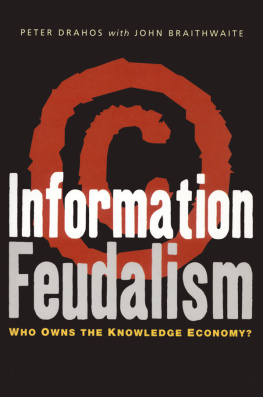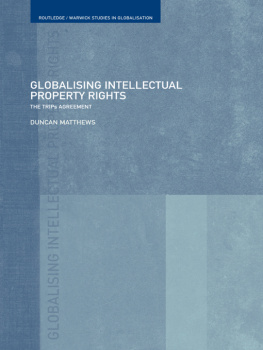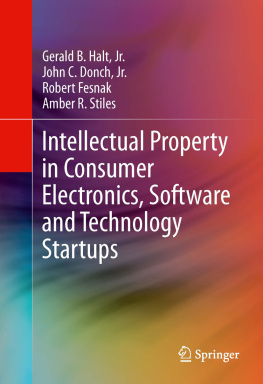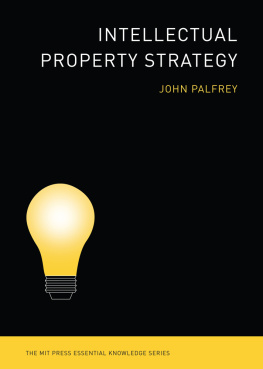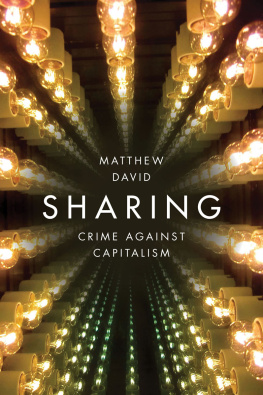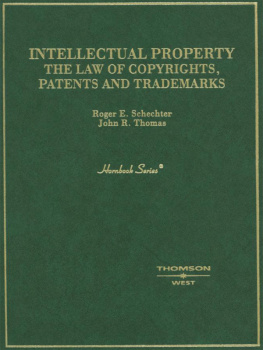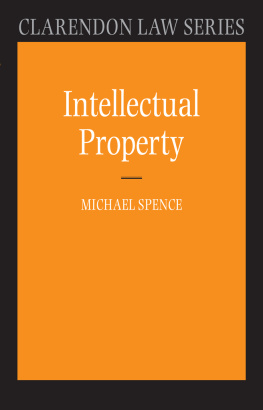
Information Feudalism
For Frank and Vlasta Drahos
Information Feudalism
Who Owns the Knowledge Economy?
Peter Drahos
with
John Braithwaite

First published by Earthscan in the UK in 2002
For a full list of Earthscan publications please contact:
Earthscan
2 Park Square, Milton Park, Abingdon, Oxon OX14 4RN
711 Third Avenue, New York, NY, 10017, USA
Earthscan is an imprint of the Taylor & Francis Group, an informa business
Copyright Peter Drahos, 2002. Published by Taylor & Francis.
All rights reserved. No part of this book may be reprinted or reproduced or utilised in any form or by any electronic, mechanical, or other means, now known or hereafter invented, including photocopying and recording, or in any information storage or retrieval system, without permission in writing from the publishers.
Notice:
Practitioners and researchers must always rely on their own experience and knowledge in evaluating and using any information, methods, compounds, or experiments described herein. In using such information or methods they should be mindful of their own safety and the safety of others, including parties for whom they have a professional responsibility.
Product or corporate names may be trademarks or registered trademarks, and are used only for identification and explanation without intent to infringe.
A catalogue record for this book is available from the British Library
ISBN-13: 978-1-853-83922-1 (hbk)
ISBN-13: 978-1-853-83917-7 (pbk)
Typesetting by JS Typesetting Ltd, Wellingborough, Northants
Cover design by Andrew Corbett
Contents
T he idea for this book occurred at a bus stop in Geneva in 1993. Drahos and Braithwaite were on their way to conduct some interviews at UNCTAD for a project on global business regulation. The bus was a natural choice for two impecunious academics not wishing to be profligate with their funders money (the National Science Foundation, the American Bar Association and the Australian Research Council). Drahos was going on about the importance of the changes in intellectual property regulation. Braithwaite, after some patient listening, interrupted, suggesting that they write two books together, one on the globalization of business regulation and another on the globalization of intellectual property. Drahos agreed. The bus arrived taking the duo to the first of their interviews at UNCTAD that morning.
The book on the globalization of regulation was published in 2000 under the title of Global Business Regulation. The writing of it drew on more than five years work in the field, during which time more than 500 key informants were interviewed, all of them by the authors, most by both together. This current book also draws on that data, in addition to which some further interviews were conducted, some as late as 2001. A discussion of the methodology underlying this fieldwork, as well as a list of those interviewed, is to be found in Global Business Regulation. Many of the regulatory standards that have a global reach in our world are shaped by informal negotiations of which no written record is made. Our purpose in conducting so many interviews has been to reveal what the formal language of international intellectual property agreements does not: the informal dynamic of power that determines the choice of words, their meaning and subsequent utilization. Aside from the fieldwork data, this book overlaps with Global Business Regulation in other ways. In that book one of our conclusions was that big business sovereignty over the regulatory standard-setting process often results in the regulation of markets, whereas citizens would benefit more from deregulated, competitive markets. When governments set intellectual property rules, they interfere in markets in information. This is justifiable if the costs of deregulated information markets outweigh the benefits. Our work suggests that governments rarely take a cost-benefit approach to intellectual property. The intellectual property standards we have today are largely the product of the global strategies of a relatively small number of companies and business organizations that realized the value of intellectual property sooner than anyone else. It is only now that these standards affect basic goods such as seeds, services and information flows in a global trading economy that their full costs to citizens and business in general are coming to be appreciated.
During the course of this project we have received help from a number of sources and people. The fieldwork foundations of this book were laid in 1994 when Drahos spent a year at the Research School of Social Sciences (RSSS) at the Australian National University as a Visiting Fellow under the Reshaping Australian Institutions Project. Our thanks go to Geoffrey Brennan, the Director of the RSSS at that time, as well as to the many scholars there who helped to shape our thinking on the issues in question. In September 1998 Drahos took up an appointment as the Herchel Smith Senior Research Fellow in Intellectual Property, at the Intellectual Property Unit of the Centre for Commercial Law Studies at Queen Mary College, University of London. The Intellectual Property Unit has long had a reputation for excellence in research and teaching. It proved to be a wonderfully collegial place in which to carry out research on intellectual property. Professor Michael Blakeney, the Head of the Intellectual Property Unit and Director of the Queen Mary Intellectual Property Research Institute, supported this project. No one could have done more. We take this opportunity to thank him for his intellectual input and the practical assistance he rendered. Our thanks also go to other colleagues at the Unit. Ellen Gredley, responsible for, among other things, the Units excellent specialist library, tracked down references for us and drew our attention to other valuable material and lines of enquiry. Upon Ellens retirement in 2000 her successor Malcolm Langley dealt with all requests with calm efficiency. Alison Firth, Gary Lea and Noel Byrne through conversation and suggestion steered us down fruitful paths. Special thanks go to our families, especially Julie Ayling and Valerie Braithwaite who helped in very many different ways.
Finally, a note of explanation concerning the authorship of this book. Right at the end of writing, and just as Drahos was in the middle of shifting countries, Braithwaite announced that it should be credited as Drahos with Braithwaite rather than Drahos and Braithwaite. It would be tedious to recount the many conversations that this particular Braithwaitean initiative inspired, but in the end and under considerable pressure Drahos relented. Drahos now, however, invites the reader to read the with as an and, since the with does not reflect Braithwaites wonderful contribution to this book and the way in which he inspired the greater intellectual project of which this book is a part. No doubt if Braithwaite were given the opportunity to reply he would insist on the with in his customary self-effacing and generous style. But as Drahos pens this last sentence on a beautiful summers day in Canberra he has decided not to give Braithwaite that opportunity.
Peter Drahos AND John Braithwaite
Research School of Social Sciences
Australian National University
December 2001
Next page
